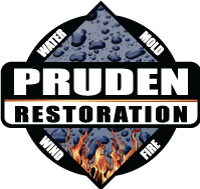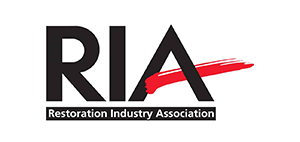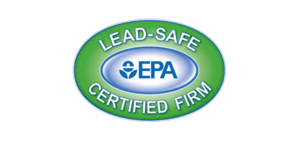Water damage causes an array of issues: it damages building materials, destroys furniture and electronics, facilitates mold growth and can even pose health concerns if untreated properly.
Tenants have the right to a habitable home and in most states can deduct certain repairs from rent payments; failing repairs could even serve as an argument in an eviction suit against their landlords.
1. Turn off the Water
Entergy has threatened a resident at Big Country Chateau Apartments of shutting off her water supply unless she and others pay overdue water bills, raising concerns and prompting residents to inquire as to the timeline for resolving these matters.
Arkansas and many other states guarantee tenants the right to live in a habitable rental property, which includes clean water, safe heating and cooling systems, durable walls and floors, a roof that keeps rain and snow at bay and a landlord who fulfills this basic obligation – failing which they may be in violation of state laws. Furthermore, landlords must keep plumbing infrastructures working well at rental properties.
Most lease agreements include provisions on how and when tenants may request repairs from their landlords, though in many states landlords can only be forced to make specific repairs by court order or if it affects health and safety issues for tenants. Under implied warranty of habitability provisions, tenants may use failure of repairs as a defense when filing eviction cases against landlords, with some states even permitting tenants to terminate lease agreements or withhold rent when major issues persist.
Before any crisis strikes, it is vitally important that you know how to shut off the water supply at your rental home or apartment building. Locating and opening a sink or faucet unaffected by this shutdown will relieve pressure in pipes, potentially helping avoid further water damage before it occurs. Once open, turn the knob anticlockwise at your main valve in order to quickly switch it off in an emergency situation. It would be prudent for all household members and family members to be shown where these valves can be found so they can quickly respond in case of an immediate emergency situation.
- Locate the leak. The first step is to locate the source of the leak. This may be difficult, as leaks can often be hidden behind walls or under floors. However, there are a few things you can do to help you find the leak.
- Look for signs of water damage, such as wet spots on the ceiling, walls, or floors.
- Listen for the sound of running water.
- Check for any loose or damaged pipes.
- Turn off the water supply. Once you have located the leak, you will need to turn off the water supply to the area. This will prevent the leak from getting worse and causing further damage.
- Repair the leak. Once the water supply has been turned off, you can begin to repair the leak. The specific steps involved in repairing a leak will vary depending on the cause of the leak. However, some common methods of repairing leaks include:
- Using a pipe repair kit. These kits typically contain epoxy resin and a hardener that can be used to seal small leaks.
- Replacing a damaged pipe. If the leak is caused by a damaged pipe, you will need to replace the pipe. This may require the services of a plumber.
- Installing a new faucet. If the leak is coming from a faucet, you may need to install a new faucet.
- Clean up the area. Once the leak has been repaired, you will need to clean up the area. This includes removing any water that has leaked and drying the area. You may also want to use a dehumidifier to help remove any moisture from the air.
- Prevent future leaks. Once the leak has been repaired, you can take steps to prevent future leaks. This includes:
- Inspecting your pipes regularly for signs of damage.
- Replacing old or damaged pipes.
- Installing leak detectors.
- Keeping your home well-maintained.
2. Move Your Belongings
Fayetteville — It’s spring, and college students are moving into new apartments across Northwest Arkansas. However, new laws in place make the task more complicated; state law no longer mandates landlords make their properties habitable, and few city housing inspectors cannot keep up with all complaints let alone fix every broken item in an acceptable timeframe.
In most cities, landlords who want to charge tenants rent are required to make the home or apartment habitable before charging rent; otherwise tenants can withhold some or all of their rent until necessary repairs have been made by their landlords. Condos also fall into this category. But in Arkansas where a lease agreement can be terminated due to active military duty or another reason at any time without incurring penalties, landlords do not need to make it inhabitable before charging tenants rent.
Neil Sealy, an organizer with Arkansas Renters United, noted that Arkansas lacks warranty of habitability laws protecting rental housing, which creates problems as landlords may take advantage of renters by withholding deposits or raising rent after disaster strikes to get out of paying repairs. Some have even gone so far as withholding deposits and raising rent as an attempt at avoidance, according to him.
Sealy notes that in order to compel landlords to make homes or condominiums habitable, court orders and an appropriate eviction process may be necessary. Tenants need to know how they can protect their rights and be ready. Review lease agreements to understand landlord responsibilities before disaster strikes and document any damages found as soon as they occur in order to notify their landlord/property management company and hire a restoration service immediately.
3. Contact Your Landlord in Springdale, Arkansas
Once the damage has occurred, contact your landlord’s insurance carrier as soon as possible to discover their next steps. It is advisable that this request is in written format so you have proof of communication attempts as well as being able to verify when and if they were received by them.
Know that, in all states excluding Arkansas, tenants have the legal right to live in an environment which is safe and habitable regardless of what their lease says. Therefore, if a serious issue with the property persists despite your efforts at communication with the landlord, taking strong actions such as terminating or breaking it could be possible if necessary.
Landlords are responsible for maintaining the building structure and common areas, but not the personal belongings in your rental unit. Therefore, you should purchase landlord-tenant insurance to cover any potential damages to these items caused by fire, flood or any other natural disasters. Having this coverage could help replace them if necessary.
In certain states, you have the legal option of “repair-and-deduct.” This allows you to hire someone to repair the issue at hand, then subtract its cost from your next month’s rent payment. Please keep in mind that this should only be used as a last resort after all other efforts to get your landlord to address the problem have failed.
Arkansas recently passed a law mandating minimum standards for rental properties; however, how these laws will be enforced remains unknown. You’ll need to work hard with your landlord in order to ensure that their property meets this minimum standard and meets any maintenance needs as needed to make it an appropriate living environment.

4. Contact Your Insurance Company
Arkansas landlords are required to keep up the property to an habitable standard, providing clean and safe surroundings with hot water, durable walls and floors, heat, and roofs that keep rain off of it. If they fail in doing this, legal action may be taken against them in order to force repairs to be made immediately.
First step should always be contacting your insurance provider about damage. Your agent will send out an adjuster who will assess and determine if your claim is covered, creating a list of materials and labor needed to repair your damage, creating an estimate of actual cash value (ACV) or replacement cost settlement based on policy size.
If your claim is denied, an experienced lawyer can review your policy and assist in appealing the decision. A legal representative may also help guide disputes regarding insurance settlements such as claims that insurers are overlooking damages or offering insufficient compensation.
If you’re worried about the health and safety of your home or your landlord’s failure to maintain essential maintenance, filing a complaint with your city housing inspector is one option. Engaging an attorney and appearing before a judge for court orders that force repairs may also help; but any lease provisions prohibit withholding rent during this process, or else risk being evicted. In serious health and safety-related cases, court orders could require them to meet minimum standards set out in state rental laws.
5. Contact a Restoration Company in Arkansas
If your apartment ceiling has experienced water damage, it can be challenging to pinpoint who’s responsible. No matter who it is, water must be addressed and repaired promptly – whether that means calling in a restoration company like Pruden Restoration immediately for help. Their certified technician will conduct an inspection, create a 3D scan of your home, provide you with a report detailing damages, which they’ll then send directly to your insurance carrier for fast restoration bid approval.
Once your insurance company has authorized restoration work, it’s essential that you take immediate steps to safeguard your belongings from further damage. This may involve cleaning up any standing water as well as drying and repairing affected areas in your home or apartment. Also consider moving any furniture that could be at risk from water damage as early as possible.
Notably, no laws exist within Arkansas or Little Rock that require owners or property managers to remediate mold. However, if you notice mold in your rental unit it is important to inform both them as well as inquire if any measures will be taken by them to address it.
Landlords should also be mindful that water damage caused by unreasonable use – such as tearing up carpets – could fall under their responsibility, even if their landlord failed to make repairs that could have prevented it in the first place. Tenants on the other hand should keep in mind they could withhold rent until repairs can be made which make the property livable again, potentially even if repairs would have prevented this damage occurring in the first place.










